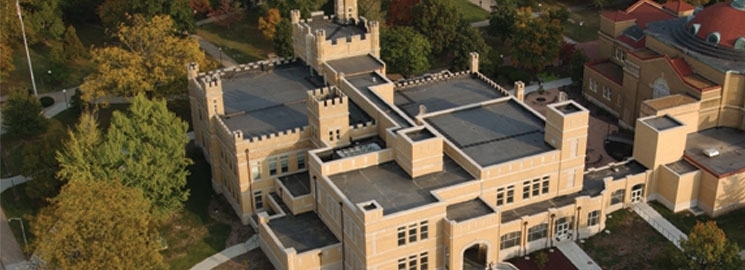Campus Governance
/https://siu.edu/search-results.php
Last Updated: Sep 24, 2024, 03:49 PM

The Board of Trustees and university officers consult with certain advisory bodies as appropriate. These representative constituency bodies are described as follows:
- Administrative/Professional Staff Council is an elected body representing members of the campus community who hold administrative or professional titles exempt from the University Civil Service System or who hold research positions covered by the "Title and Classification Guidelines for Research Personnel."
- Civil Service Council is composed of civil service employees elected from their constituencies.
- Faculty Senate is composed of approximately 30 faculty members elected by their respective colleges, according to a representational formula. The Senate, with its standing committees on Faculty Status and Welfare, Undergraduate Educational Policy, Budget, and Governance, makes recommendations to the administration on a range of personnel, governance, and academic policy issues.
- Graduate Council is composed of graduate faculty members, elected by the graduate faculty in their respective colleges, and graduate students nominated and elected by procedures determined by the Graduate and Professional Student Council. With its standing committees on Research, Educational Policies, New Programs, and Program Review, the Graduate Council acts as agent for the graduate faculty with delegated power to formulate policy in regard to graduate programs and research.
- Graduate and Professional Student Council is composed of graduate student representatives from academic departments and professional student representatives from the Schools of Law and Medicine. The Council has the authority to act on behalf of its membership on matters of concern at the local, state, and national levels. The GPSC is also responsible for disbursement of graduate and professional student fee monies.
- Undergraduate Student Government represents all undergraduate students at Southern Illinois University Carbondale. Its primary responsibility is to make recommendations to the university administration about academic policies, student services, the level and use of student fees and tuition, and such other matters that affect and interest undergraduate students. USG consists of the Executive Branch, which provides general management and direction; the Student Senate, composed of 39 representatives elected from the various geographic and academic areas, with responsibility for recognizing student organizations and allocating fee monies to them; and the Judicial Board of Governance, which is charged with monitoring Student Government activities. The Undergraduate Student Government is recognized by the Board of Trustees as the official organization representing students in matters pertaining to student welfare, student activities, and student participation in university affairs.
Campus Committees
Campus governance, though primarily associated with the various constituency bodies, is also exercised through a far-reaching, university-wide committee structure. Employees participate in such standing committees as the Affirmative Action Advisory Committee, Honorary Degrees and Distinguished Service Committee, Intercollegiate Athletics Advisory Committee, Parking and Traffic Appeals Board, Naming University Facilities Committee, Ombudsman Advisory Committee, Chancellor's Budget Advisory Committee, Traffic and Parking Committee, University Joint Benefits Committee, and at least a dozen others. Faculty, staff, and students are also involved in ad hoc committees (task forces, position search committees, etc.). Appointments to these committees are made by nomination from the appropriate constituency bodies.